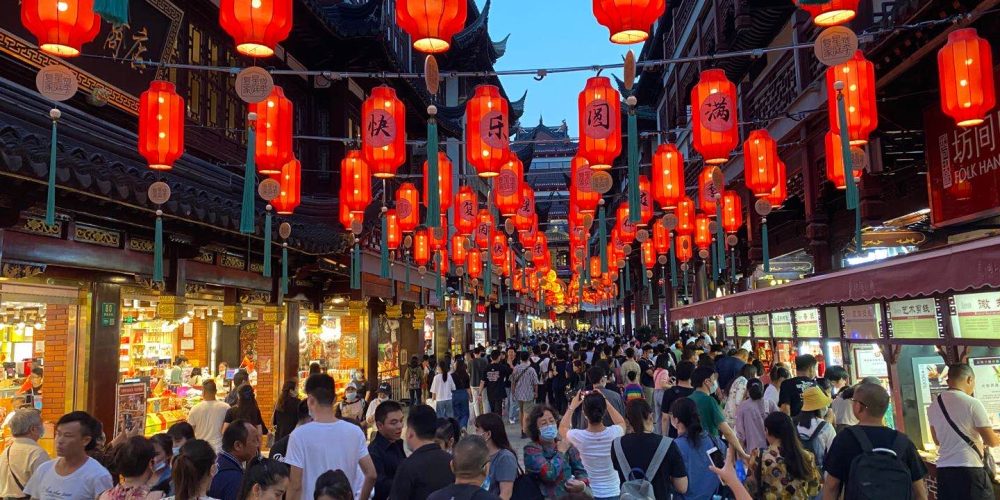
Luxury spending explodes during October holidays in China
Being a foreigner living in China and COVID-19 preventing us from leaving the country (well, we could actually leave but we would be less likely able to come back…), I decided to exceptionally stay in the mainland this year for the Golden week holidays (from October 1st to 8th, one of the two major holiday in China after Chinese new year) and went on a trip in Shanghai with my friends instead of my usual exotic trips in South-East Asia or back to the motherland in Europe.
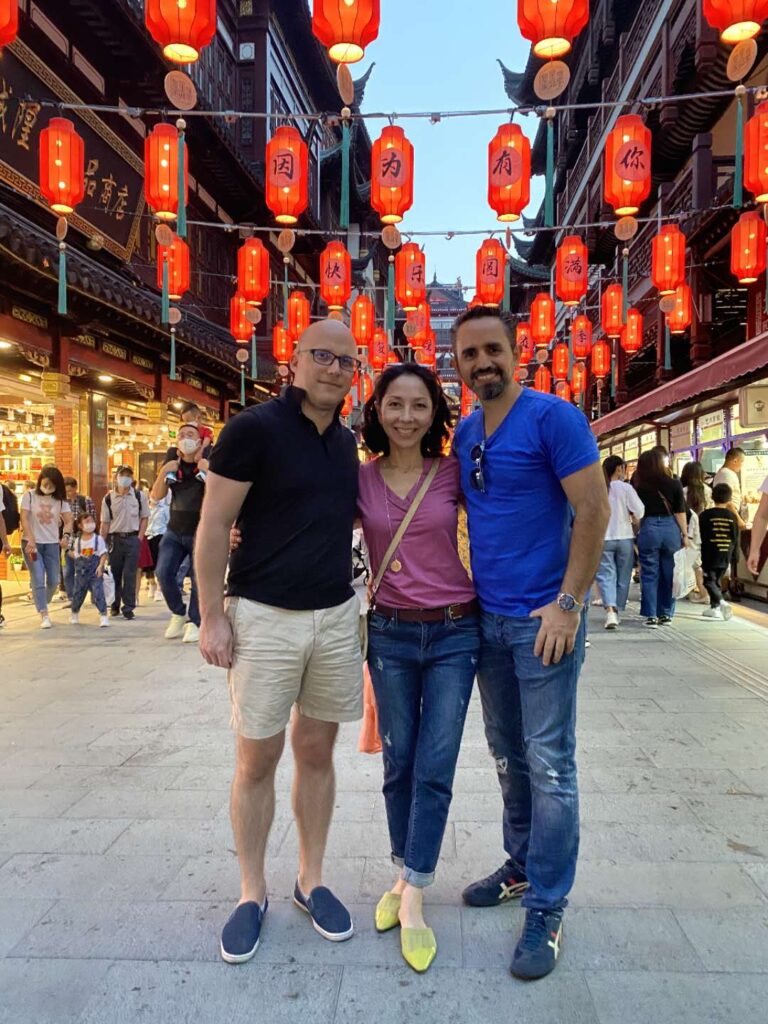
Me and my friends posting in front of the Yuyuan Bazaar in Shanghai, China
While walking though one of many Shanghai’s shopping mall, we suddenly came across long lines of young Chinese queuing up in from of some famous luxury brand’s stores. Not because China imposes restrictions on number of shoppers inside the venue (such restrictions have been lifter since May this year and there is very little if no restrictions anymore in most public places, apart from temperature checks and obligation to wear masks in closed public spaces), but rather because October holidays are traditionally a time for family gathering, present exchange under the form of money (HongBao – 红包 – also called “red envelopes”) or various goods, including luxury items.
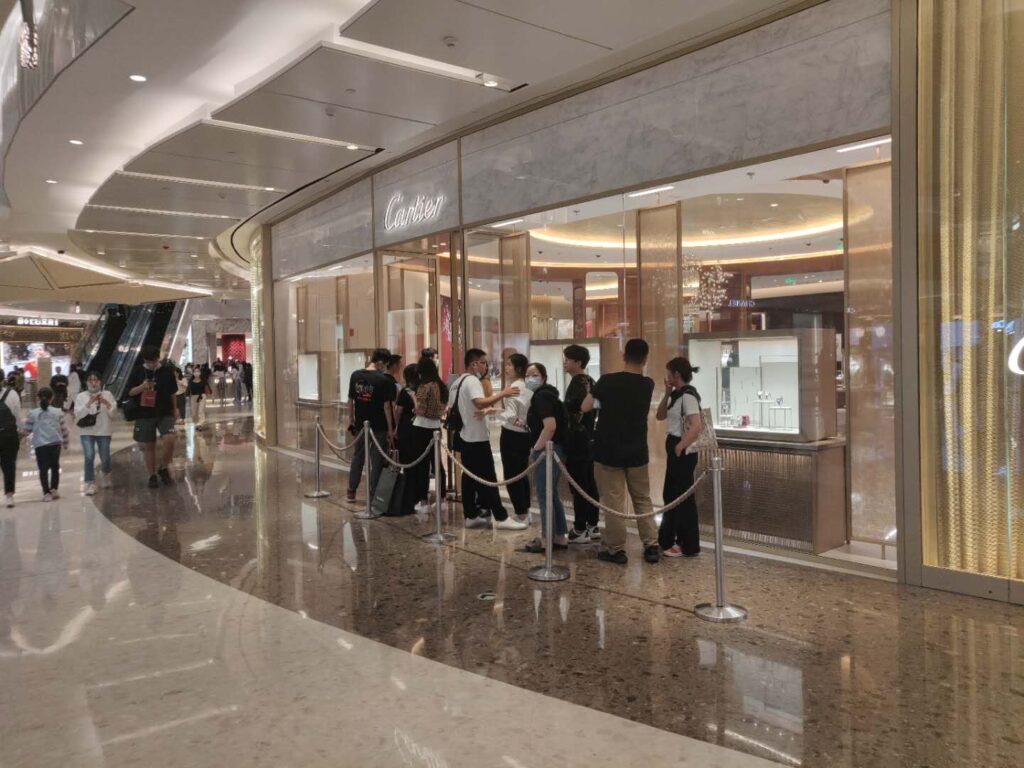
The queue in front of Cartier shop in IFC mall in Lujiazui district in Shanghai, China. Credits @Antoine RIONDET
As COVID-19 forced most Chinese to remain within the mainland for the holidays (either by fear of contamination or due to border closing and restrictions imposed when coming back to China), I came across an interesting article on Global Times China about Chinese consumer’s spending on Luxury goods, which definitely supported our general feeling that:
1) Chinese middle class consumers have nod been impacted too much by the crisis, as China managed to strictly control the spread of the virus within its borders;
and
2) The lack of travel options outside of China mainland (including Hong Kong, one of the traditional shopping paradise for Chinese, which is still as of today closed to anyone coming from the mainland without going though 14-days quarantine), resulted on more Chinese remaining within the country’s borders and spending their money in domestic purchase of luxury and imported goods rather than abroad;
The Global Times article describes: “Chinese consumers’ spending on luxury goods exploded during the eight-day-long National Day Holiday and Mid-Autumn Festival period, proving the country’s strong consumption capacity and market is strongly rebounding after the country has successfully contained the COVID-19 epidemic.
An industry expert predicted that China’s luxury sales could surge by 10-20% this year, and could remain in double-digit yearly growth for years.
An executive from French jewelry and watch brand Cartier in Shanghai told the Global Times that, as far as she knew, most top global luxury brands saw their sales surge by around 60% on a yearly basis during this year’s National Day holiday period, although she didn’t disclose the actual sales numbers for Cartier during the holiday.
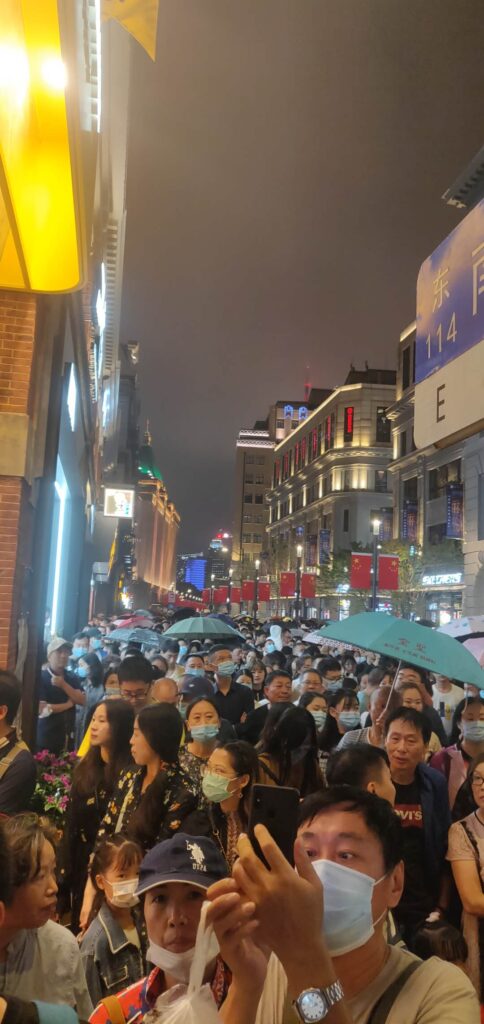
The crowd of Nanjing East Road in Shanghai, China. Credits @Antoine RIONDET
To some extent, the explosive spending on luxury products is not surprising, as luxury spending growth has lasted for some time in China. According to the aforementioned Cartier employee, business has been “very good” for most luxury brands since about May and June, a situation which she contributed to the fact that customers had to shop domestically within China, after overseas travel became restricted due to the pandemic.
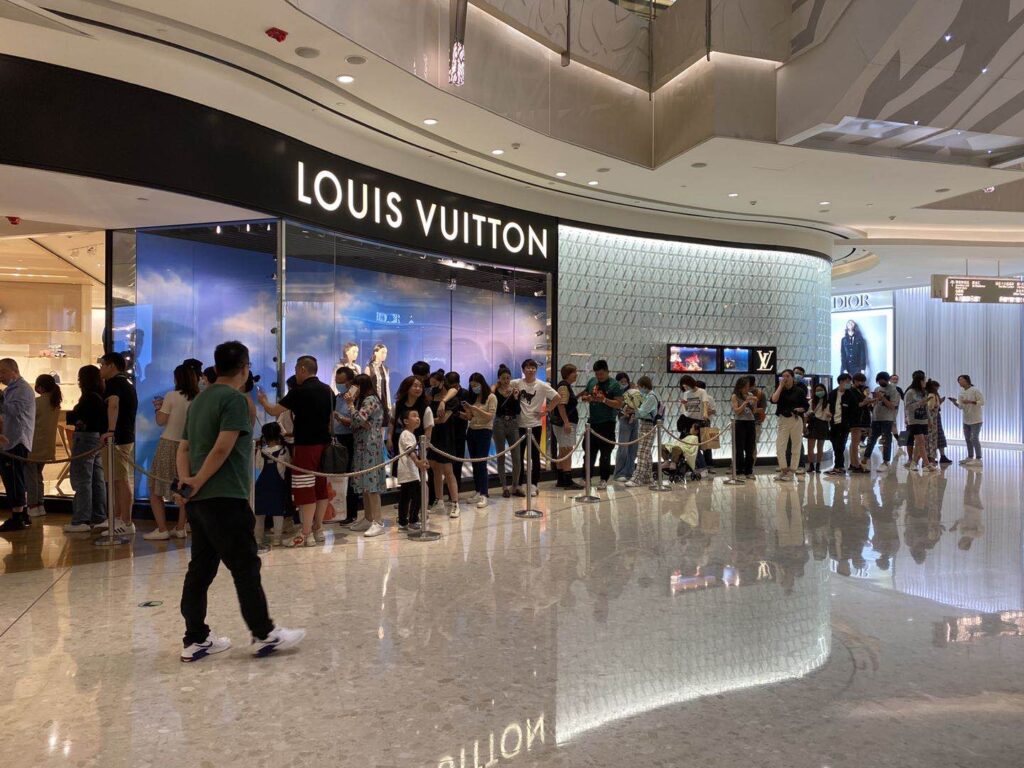
The queue in front of Louis Vuitton shop in IFC mall in Lujiazui district in Shanghai, China.
Credits @Antoine RIONDET
It’s reported that a Louis Vuitton shop in Shanghai’s Henglong Square had a stunning sales of 150 million yuan ($22.1 million) in August, while its previous monthly sales amounted to about 80-90 million yuan, according to a report of financial news website xueqiu.com.
Zhao Ping, director of the international trade department at the China Council for the Promotion of International Trade, predicted that China’s luxury sales could surge by around 10-20 percent year-on-year in 2020.
According to Zhao, the surge in consumption is proof that the coronavirus did not affect the average Chinese people’s income too much, thanks to the effective control of the coronavirus in China and rollout of government polies to stabilize the country’s economy, both of which greatly supported the employment market. She also noted that the surge in luxury consumption is a reflection of China’s “consumption upgrade” , which directly benefits high-end luxury brands”
“As China continues to stimulate new engines of economic growth, Chinese people’s spending power will grow as well. I believe China’s luxury consumption will continue a double-digit yearly growth in the future,” she told the Global Times on Sunday.
Global Times
Source: https://www.globaltimes.cn/content/1202690.shtml
Pictures: Antoine RIONDET
